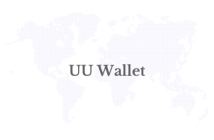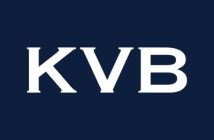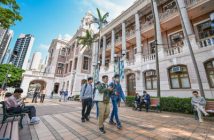· Poland’s Piotr Tłuszcz wins a special humanitarian prize for The Life Chariot, an off-road trailer ambulance for universal towing, that has been used by medics in Ukraine
· Korea’s first global winners secure prize for The Golden Capsule, a hands-free (intravenous) IV device for use in disaster zones
HONG KONG SAR – Media OutReach – 15 November 2023 – The James Dyson Award, the international design award, today announces its three global winners: an International winner, a Sustainability winner, and a Humanitarian winner. For the first time for Hong Kong – two students from the Chinese University of Hong Kong – Hoi Fung Ronaldo Chan and Can Xiao, have been awarded the Sustainability award with their eco-friendly solution utilising waste glass and turning it into coating with a high cooling effect for buildings. The winners are selected by Sir James Dyson, each will receive £30,000 to support the next stages of their inventions.

Commenting on this year’s competition, Sir James Dyson said: “Rather than grandstanding about the problems we face, these young inventors are getting on and solving them with technology and design. It’s their passion and determination to improve the world that makes them so impressive, and I hope the Award will give them a springboard to success.”
Sustainability winner – E-COATING, invented by Hoi Fung Ronaldo Chan and Can Jovial Xiao
In Hong Kong, air-conditioning accounts for almost a third (31%) of total electricity consumption.[1] In addition, over 178 tonnes glass bottles end up in landfills every day[2].
E-COATING is an eco-friendly solution that solves two problems in one. It is created from recycled waste glass and can be applied to exterior roofs and walls to reflect the sun’s rays thereby reducing the heat absorption of buildings. This reduces the amount of electricity consumed on cooling solutions like air-conditioning and mitigates the associated greenhouse gas emissions.
“Ronaldo and Jovial have come up with a clever way to turn waste into something much more valuable. E-COATING uses recycled glass to create a coating to put on exterior walls. This reflects the sun’s rays, and therefore saves a substantial proportion of the electricity needed to cool the building. It is a dual solution that is good for the environment and saves money.” Sir James Dyson, Founder and Chief Engineer at Dyson.
The Award will support the team’s plans to advance E-COATING’s adhesion and ease of application. They will also investigate new E-COATING formulas for indoor use.
After speaking to Sir James Dyson, Ronaldo and Jovial said, “We invented E-COATING with a desire to help tackle the serious environmental problems our planet is facing. The prize money will allow us to further our research and development goals and start a company to take our invention to the next level.”
Humanitarian winner – The Life Chariot, invented by Piotr Tłuszcz
As he watched the conflict unfold in Ukraine, young inventor Piotr observed the challenges of medical evacuations across challenging terrain. This inspired him to design The Life Chariot, a MEDEVAC off-road ambulance that can attach to any hook-equipped vehicle. The vehicle’s low weight and suspension makes it safer for a casualty to travel in than the boot of a car.
Piotr’s interest in designing trailers started with off-road trips with his family through the Balkans and Pyrenees. He then spent the next 10 years and the course of his bachelor’s and master’s degrees designing off-road and cave rescue trailers, before creating The Life Chariot. The Life Chariot increases the evacuation capabilities of rescue teams by adding room for one injured person on a stretcher and two more seats for medics or the lightly wounded. The initial two builds have been given to the Ukrainian Medical Military Unit and the Polish Voluntary Medic Unit of Damian Duda “W Międzyczasie” Foundation, having been tested in terrains such as mountain trails, forests, caves and mines.
“This year the James Dyson Award gives a special Humanitarian prize to Piotr, who has designed an ingenious way of recovering injured people from challenging terrain. The Life Chariot can be towed by anything – allowing medics to do their life-saving work with the resources they have at hand. It’s also brilliant to see his iterative design process continue in response to feedback from those using it on the ground.” Sir James Dyson, Founder and Chief Engineer at Dyson.
Piotr is continuing to implement upgrades to The Life Chariot based on feedback received from medics working on the front line. He is also working on adapting the vehicle for mountain rescue purposes.
On winning the 2023 James Dyson Award, Piotr said, “I hope that The Life Chariot, with support from the James Dyson Award, will continue to save lives, whether in frontline evacuations or rescues from accidents in inaccessible places.”
International winner – The Golden Capsule, invented by Yujin Chae, Daeyeon Kim, Yeonghwan Shin and Yuan Bai
The Turkish-Syrian earthquakes in February 2023 resulted in over 55,000 casualties, with a further 100,000 injured.[3] Throughout the evacuation process, medics had to move through harsh environments while carrying several IV packs in their hands for their patients.
In response to this problem, a team of student inventors from Hongik University in Seoul designed The Golden Capsule, a non-powered and hands-free IV device which uses elastic forces and air pressure differences rather than gravity. This means that medics in disaster zones do not have to hold up IV packs while transporting patients, and electricity is not required to control the infusion rate.
“The team has identified the limitations of existing IV injection methods, which rely on gravity and electricity, in disaster zones. Their Golden Capsule offers a much more practical, hands-free solution, using a pressurised bladder, which can be positioned anywhere, such as strapped to the patient’s side. This slowly deflates, pressurising the drip into the patient, leaving medics free to perform other life-saving work.” Sir James Dyson, Founder and Chief Engineer at Dyson.
The team will continue to conduct prototype improvements and user tests in collaboration with medical experts to ensure The Golden Capsule’s functionality in various emergency scenarios and hospitals. In the future, the team plans to bring their invention into mass production.
On designing their winning invention, the team said, “We saw the difficulties medics and first responders faced at natural disaster sites when transporting patients with IVs, and feedback for our solution has been positive so far. Ultimately, we hope to establish this as the new standard for IV packs, not only in emergency situations, but in hospitals too.”
Hashtag: #JamesDysonAward
The issuer is solely responsible for the content of this announcement.
The James Dyson Foundation
![]() The James Dyson Award forms part of a wider commitment by Sir James Dyson to demonstrate the power of engineers to change the world. The competition has supported over 300 inventions with prize money and is run by
The James Dyson Award forms part of a wider commitment by Sir James Dyson to demonstrate the power of engineers to change the world. The competition has supported over 300 inventions with prize money and is run by ![]() the James Dyson Foundation, an engineering education charity funded by Dyson profits.
the James Dyson Foundation, an engineering education charity funded by Dyson profits.
The ![]() Dyson Institute of Engineering and Technology and the Foundation’s work encourage aspiring engineers and problem solvers to apply their knowledge and discover new ways to improve lives through technology. To date, James and the James Dyson Foundation have contributed over £140m to boundary-breaking concepts in education and other charitable causes.
Dyson Institute of Engineering and Technology and the Foundation’s work encourage aspiring engineers and problem solvers to apply their knowledge and discover new ways to improve lives through technology. To date, James and the James Dyson Foundation have contributed over £140m to boundary-breaking concepts in education and other charitable causes.
The Foundation has a ![]() website,
website, ![]() Instagram,
Instagram, ![]() Twitter and
Twitter and ![]() YouTube.
YouTube.
About the competition
The brief
Design something that solves a problem. This problem may be a frustration that we all face in daily life, or a global issue. The important thing is that the solution is effective and demonstrates considered design thinking.
The process
Entries are judged first at the national level by a panel of external judges and a Dyson engineer. Each operating market awards a National winner and two National runners-up. From these winners, a panel of Dyson engineers then select an international shortlist of 20 entries. The top 20 projects are then reviewed by Sir James Dyson who selects his international winners.
The prize
- International winners, chosen by Sir James Dyson, awarded up to £30,000.
- Each National winner receives £5,000.





